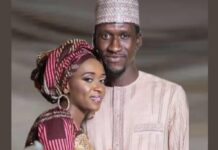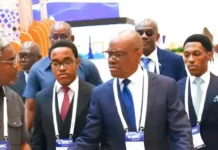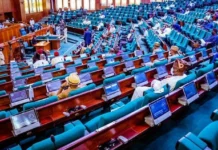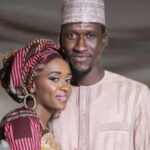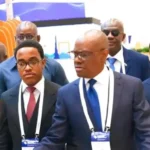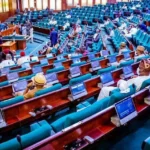Mallam Buba Galadima, a prominent chieftain of the New Nigerian Peoples Party (NNPP), has revealed that the late former President Muhammadu Buhari was drafted into politics by Northern leaders to stop the growing agitation for an Oduduwa Republic.
Speaking during an interview on Arise Television’s Morning Show on Tuesday, Galadima disclosed that Northern political figures were alarmed by the activities of the Oodua Peoples Congress (OPC) and other Yoruba self-determination groups, especially their push into Ilorin, Kwara State, which they believed threatened Fulani dominance in the region.
According to Galadima, the rise of Yoruba nationalism in the late 1990s and early 2000s—particularly the mobilization of over 500 vehicles by agitators to “uproot Fulani structures” in Ilorin—sparked fears among Northern elites. As a strategic countermeasure, they resolved to support a respected Fulani figure with military credentials and national appeal. That man was Muhammadu Buhari.
“Some of us who recruited Buhari had a mission. And I will reveal that mission today why General Buhari came into politics. It was not his province. He never liked the politicians because he believed we were fake and that we did not mean what we say,” Galadima said.
He added: “But there was an incident that made some of us recruit him, convince him, and use other people to convince him to join politics, even though we had our own agenda.”
Galadima revealed that Northern leaders were deeply unsettled by the perceived inaction of then-President Olusegun Obasanjo and Lagos State Governor Bola Tinubu in curbing the influence of OPC and its affiliates like the Coalition of Oodua Self Determination Groups (COSEG).
“We felt that was too much, and President Olusegun Obasanjo was doing nothing. President Bola Tinubu, then Governor of Lagos, was doing nothing. And some of us felt that those groups of people were being encouraged by their leaders in positions of authority. So how do we stop that?”
He said the plan was clear: counter the rising Yoruba agitation through the ballot box by positioning a trusted Northern candidate. That plan, according to him, led to Buhari’s political entry and subsequent prominence.
Galadima stated that he convened a meeting of about 34 Northern leaders in Kaduna where they deliberated on the rising influence of the OPC and how to contain it.
“How do we save our people from this OPC menace? I suggested that we have to, because you remove government through only two ways: the barrel of the gun and through the ballot box. And they said it was impossible to challenge General Obasanjo. That was how Buhari came to our mind.”
When approached, Buhari was initially reluctant and made critical remarks about politicians. However, Galadima noted that his refusal was not outright, so they continued to persuade him until he agreed to enter politics.
“To cut a long story short, we achieved our first purpose of putting a brake on what the OPC was doing. Immediately Buhari joined partisan politics, we had a very big outing to initiate him into politics. The Obasanjo government became restive and was shaken to its bone marrow. Obasanjo had to really checkmate the OPC,” he said.
He recalled that the Obasanjo administration declared OPC leaders, including Dr. Frederick Faseun and the current Aare Ona Kakanfo of Yorubaland, Iba Gani Adams, wanted. The government also ordered security forces to shoot OPC members on sight—leading to several casualties among Yoruba self-determination activists.
Galadima’s revelations point to three key takeaways:
- Buhari’s political journey was not driven by a desire to reform Nigeria, but rather to protect Fulani interests and suppress Yoruba nationalist movements.
- His perceived tolerance of Fulani herders and slow response to banditry may have been tied to this mission.
- Buhari, despite serving as Nigeria’s President, operated under the influence of a Fulani-dominated inner circle.
He concluded by saying: “With the emergence of Indigenous Peoples of Biafra (IPOB) and other ethnic-based groups, it shows clearly that the first agenda of any Northern candidate in the coming presidential election is to protect Fulani interests though presented as an attempt to save Nigeria.”
Galadima’s bold claims have recalled motivations behind Buhari’s presidency and the deep-rooted ethnic calculations that continue to shape Nigeria’s political landscape.



